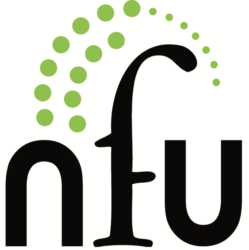“Planning for decolonization? Challenges, transitions, and transformations in global development and planning”
Due to the Covid-19 pandemic, this conference is now postponed until further notice. More information will follow.
The upcoming NFU Conference will advance the ongoing discussion on decolonization and discuss the knowledge needed to reach the Sustainable development goals (SDGs). Researchers, policy makers and civil society actors are invited to discuss practices, experiences, challenges and future possibilities of knowledge production and its use. The conference is hosted by the Department of Global Development and Planning at the University of Agder, Norway. Global development and planning are two interdisciplinary fields with common interests, not least in relation to the consequences of economic globalization, growing social inequalities, and mounting challenges to the sustainability of human societies at multiple scales. Both fields generally acknowledge that the drivers of these phenomena are highly political, and that solutions proposed by governments, market and international development agencies continue to be shaped by both colonial and other asymmetric relations of power (Metzger, Allmendinger et al. 2014). The conference is an arena for interdisciplinary discussions of SDG related challenges both in the Global South and North, with a focus on dialogue and cooperation with policy makers and civil society actors. While much of the discussion on decolonization has been rather theoretical, there is now an urgent need to discuss how these perspectives present challenges and opportunities in policy and practice aimed at reaching the SDGs on a global level.
Despite growing scholarly attention to the concept of decolonization and its importance in debates on positionality, most research in global development and planning continues to be dominated by scholarly discourses and theory produced in the so-called ‘Global North’ (Comaroff and Comaroff 2012). The North – South divide itself is increasingly being challenged, however, not only by postcolonial studies, but also by emerging trends in the practice of both development and planning. The SDGs explicitly acknowledge that problems related to – for example – gender inequality, poverty, sustainability, urbanisation, and migration are global and interconnected. These global interlinkages challenge issues of power, justice and knowledge in sustainability endeavours. Accordingly, finding ways of operationalising and achieving the SDGs – as well as critically examining vested interests and lingering inequalities of power in their governance and implementation – require cross-disciplinary approaches, as well as the involvement of a broad spectrum of actors and voices (Gunder, Madanipour et al. 2017).
In this conference, we invite contributions that explore existing gaps and create new dialogues: between the fields of development and planning, between researchers and practitioners, and between systems of knowledge production across multiple world regions. As such, the conference will explore how efforts to address contemporary challenges in development, planning, and decolonization can be approached as mutually complementary rather than mutually exclusive or contradictory. Decolonizing development and planning require us to question established categories and narratives about the world we live in (wa Thiong’o 1986; Porter 2016), taking “alternative” ideas about the world seriously as theories or epistemologies (de Sousa Santos 2014). It may also require us to explore “alternative” ways of producing knowledge, for example through the adoption of new methodologies, or establishing more equitable scientific relationships with international collaborators in empirical field research (West 2016).
NFU has 3 permanent panels (2019-2021): “Political Ecology: Politics, Power, and Environmental Change”, “Religion and Development” and “Challenging Actors in International Development” (http://nfu.no/nfu-panels-2019-21/). We invite proposals for additional working groups and panels to discuss key aspects of the overall topic of the conference. Each working group can have up to three panel sessions, with a minimum of 3 and maximum of 10 papers. It is also possible to propose single panels, consisting of 3-4 paper givers or contributors. Working group chairs may propose panels and specify papers, but should also reserve slots for additional papers. All accepted working groups will be listed on the conference website and a call for individual papers will be open during April 2020. Chairs are responsible for accepting and allocating suitable individual papers to panels, and for ensuring gender balance as well as a mixture of senior, mid-level and junior scholars in their working group.
Please submit an abstract for working group or panel of no more than 400 words by using this link by 15 April 2020.
[Deadline is now closed]
For any questions, please contact senior advisor Målfrid Tangedal: malfrid.tangedal@uia.no.
More information on the conference will follow soon at the UiA webpage.
